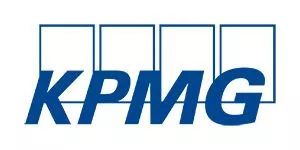ANTI-MONEY LAUNDERING
New EU rules to combat money-laudering adopted
On 24 April 2024, the EU Parliament announced that it had voted in plenary to adopt three pieces of anti-money laundering legislation, and published the adopted texts of:
- the proposed Regulation on the prevention of the use of the financial system for the purpose of Money Laundering or Terrorist Financing ("ML/TF") ("AML Regulation")
- the proposed Regulation establishing the Anti-Money Laundering Authority ("AMLA"); and
- the proposed 6th Money Laundering Directive ("MLD6").
The EU Commission also published a factsheet, an FAQ document, and an article which can be accessed here.
The EU Council must now adopt the legislation formally, after which it will be published in the Official Journal of the EU ("OJ").
- AML Regulation: this will enter into force 20 days after publication in the OJ, and apply three years from the date it enters into force, except in relation to Article 3(3)(n) and (o) which will apply five years after entry into force.
- AMLA: this will enter into force seven days after publication in the OJ and will apply from 1 July 2025, with the exception of Articles 1, 4, 49, 53-55, 57-66, 68-71, 100, 101 and 107 which will apply from 31 December 2025.
- MLD6: this will enter into force 20 days after publication in the OJ. Member States will have 36 months from the date of entry into force to transpose MLD6, with the exception of:
-
- Article 74 which will apply 12 months after;
- Articles 11, 12, 13 and 15 which will apply 24 months after; and
- Article 18 which will apply 60 months after.
For more information on the above please refer to our regulatory insights of February 2024.
ASSET MANAGEMENT
ESMA proposes changes to ELTIF Technical Standards
ESMA has responded on 22 April 2024 to the EU Commission request on amendments to the European long-term investment fund (ELTIF) Technical Standards (RTS). In its letter ESMA suggests that there should be a limited number of changes to find the right balance between protecting retail investors and contributing to the capital market union objectives.
On the RTS on redemption policy, and specifically on the calibration of the requirements relating to redemptions and liquidity management tools, ESMA acknowledges that there should be an appropriate balance between protection of retail investors and financial stability related objectives and the fact that ELTIFs should make an important contribution to the capital market union objectives.
However, in view of the EU Commission's comments, ESMA proposes striking that balance slightly differently from the EU Commission.
Background
On December 2023, ESMA published its final report on the draft technical standards under the revised ELTIF Regulation and submitted it to the EU Commission for adoption. In March 2024, the EU Commission informed ESMA that it intends to adopt the proposed RTS with amendments, and invited ESMA to submit new draft RTS reflecting the amendments provided. The EU Commission encouraged ESMA to consider the individual characteristics of different ELTIFs to build a more proportionate approach about the calibration of the requirements relating to redemptions and liquidity management tools.
The revised ELTIF Regulation states that ESMA shall develop draft Regulatory Technical Standards (RTS) to determine the following:
- the circumstances in which the life of an ELTIF is considered compatible with the life-cycles of each of the individual assets, as well as different features of the redemption policy of the ELTIF;
- the costs disclosure.
Next steps
The EU Commission will now be required to consider the revised RTS proposed by ESMA in its latest letter. The EU Parliament and the Council may object to an RTS adopted by the EU Commission within a period of three months.
AIFMD II entered into force
The final text of the amendments to the EU Alternative Investment Fund Managers Directive (known as AIFMD II) was published in the Official Journal of the EU on 26 March 2024 and will enter into force on 15 April 2024. EU member states have two years after publication to transpose the rules into national law. This means AIFMD II will apply from 16 April 2026, with some rules subject to a transitional period.
As summarised in our regulatory insights dated February 2024, AIFMD II incorporates material amendments to specific provisions of the AIFMD, and managers should assess how the changes in AIFMD II may impact their business or operations.
ESMA agrees with investment restrictions on GBP LDI funds in Ireland and Luxembourg
ESMA has issued on 29 April 2024 its advice to the Central Bank of Ireland (CBI) and the Commission de Surveillance du Secteur Financier (CSSF) on investment restrictions for GBP Liability-Driven Investment (LDI) funds to ensure their resilience.
The advice follows the notification from the CBI and the CCSF of their intention to impose an investment restriction on Alternative Investment Fund Managers (AIFMs) established in Ireland and Luxembourg and managing GBP-denominated AIFs pursuing a LDI funding strategy. These funds are typically set up by defined benefits pension schemes that provide guaranteed returns to future pensioners.
The measure consists in requiring GBP LDI funds to be able to resist a rise in GBP yields of at least 300 basis points (so called "yield buffer").
ESMA's analysis concludes that the conditions for taking actions under the Alternative Investment Fund Managers Directive (AIFMD) are met and the measures proposed by the CBI and the CSSF are justified and should contribute to improving the resilience EU GBP LDI. ESMA also encourages both regulators to monitor the evolution of the GBP LDI funds and to assess the necessity to recalibrate the yield buffer.
The measure applies from 29 April 2024. GBP LDI funds established on or after this date must comply with the measure immediately while existing GBP LDI funds have a three-month transitional period to comply. The measure is not limited in duration.
Finally, ESMA also invited other competent authorities of AIFMs managing such funds to adopt similar measures.
BANKING & FINANCE
Core Principles for Banking Supervision -BCBS publishes revised version
The Basel Committee on Banking Supervision (BCBS) has published on 24 April 2024 a revised version of its core principles for effective banking supervision (Core Principles), which were last updated in 2012.
The revised Core Principles came into effect immediately, and have been incorporated into the consolidated Basel Framework. The revisions seek to, among other things, promote operational resilience and address new and emerging risks, including the digitalisation of finance and climate-related financial risks.
BCBS launches consultation on guidelines for counterparty credit risk management
The Basel Committee on Banking Supervision (BCBS) issued on 30 April 2024 a consultation paper on guidelines for Counterparty Credit Risk (CCR) management. The proposed guidelines will replace the BCBS 's sound practices for banks' interactions with highly leveraged institutions published in January 1999.
The guidelines include key practices critical to resolving long-standing industry weaknesses in CCR management, including the need to: (i) conduct comprehensive due diligence of counterparties both at initial onboarding and on an ongoing basis; (ii) develop a comprehensive credit risk mitigation strategy to effectively manage counterparty exposures; (iii) measure, control and limit CCR using a wide variety of complementary metrics; and (iv) build a strong CCR governance framework. The guidelines provide a supervisory response to the significant shortcomings that have been identified in banks' management of CCR, including the lessons learned from recent episodes of Non-Bank Financial Intermediary (NBFI) distress.
The guidelines are designed to be broadly applicable to manage banks' CCR exposures to all types of counterparties. However, the greatest potential benefits are expected to be in cases where banks have high-risk exposures to counterparties, including NBFIs. Banks and supervisors are encouraged to take a risk-based and proportional approach in the application of the guidelines, taking into account the degree of CCR generated by banks' lines of business, their trading and financing activities and the complexity of such CCR exposures.
The deadline for responses is 28 August 2024.
EBA final guidelines on the application of the group capital test for investment firm groups
On 11 April 2024, the EBA published its final guidelines on the application of the group capital test for investment firm groups ("Guidelines").
The Guidelines set out objective thresholds and criteria for competent authorities to consider for the purpose of assessing whether the conditions of the group capital test, as set out in Article 8 of Regulation (EU) 2019/2033 (IFD), have been met. The Guidelines aim to ensure the group capital test is applied consistently across the EU.
The Guidelines include (i) quantitative thresholds, such as the number of undertakings and levels within a group, and (ii) qualitative thresholds, including the need for simple capital ties and a clear ownership structure. The Guidelines also set out a methodology for NCAs to assess the adequacy of the own funds requirement of third-country undertakings of EU groups.
The Guidelines will apply from 1 January 2025.
To read this article in full, please click here.
The content of this article is intended to provide a general guide to the subject matter. Specialist advice should be sought about your specific circumstances.
We operate a free-to-view policy, asking only that you register in order to read all of our content. Please login or register to view the rest of this article.




